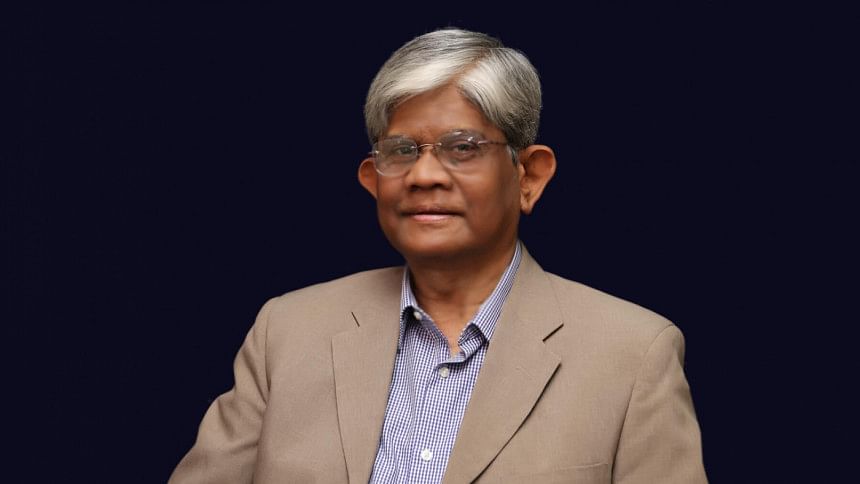IMF loan needed to secure support from other lenders

Availing loans from the International Monetary Fund (IMF) helps to get support from other development partners, which is needed to meet resource gaps in the budget, Finance Adviser Salehuddin Ahmed said yesterday.
"If any institution does not grant a loan, other institutions raise questions about why it did not materialise," Salehuddin said.
As such, if Bangladesh does not take loans from the IMF for fear of stringent conditions, there is a possibility of losing loan opportunities from other institutions such as the World Bank, Japan International Cooperation Agency and Asian Development Bank.
Salehuddin made these remarks while replying to queries at a pre-budget discussion with members of the Economic Reporters' Forum (ERF) at the finance ministry office in Dhaka.
The fourth tranche of the IMF's $4.7 billion loan to Bangladesh was supposed to be disbursed in February. However, the IMF deferred the disbursement to June as Bangladesh could not meet prior conditions.
It is now expected that the IMF will disburse two instalments simultaneously in June.
A mission from the IMF is scheduled to visit Bangladesh next month to review the latest development of the loan programme.
At the discussion, the adviser said he was hopeful that the IMF would disburse two instalments in June.
Replying to a query, the adviser said he was hopeful that Bangladesh would be able to meet the prior conditions to avail the instalments by June.
The government has to borrow from domestic and foreign sources to meet the financing gap in the budget and this support is received from various organisations, such as the IMF, ADB and World Bank.
In recent years, it has been seen that the government utilises $10 billion to $11 billion in foreign loans to finance the budget. Of the amount, $3 billion to $4 billion is received from these institutions in the form of budgetary support.
Md Abdur Rahman Khan, chairman of the National Board of Revenue, said the upcoming budget would be business-friendly and facilitate trade. There are no plans to increase the tax burden on businesspeople, he added.
Finance Secretary Md Khairuzzaman Mozumder said the government will increase the allocation for the health, education and ICT sectors in the next budget.
Salehuddin also said the government has been working to make a separate Banking Resolution Act so that the bad banks can exit. However, it must be ensured that the depositors will get back their money.
He added that the government has no plans to form a banking commission at present.
Salehuddin added that although the burden of subsidies is already high, subsidies will continue in the agricultural sector in the next budget.
The number of beneficiaries in the social safety net will be widened in the next budget, he also said.
ERF President Doulot Akter Mala presented the ERF's budget proposals to the finance adviser. Among others, ERF General Secretary Abul Kashem was also present.

 For all latest news, follow The Daily Star's Google News channel.
For all latest news, follow The Daily Star's Google News channel. 



Comments